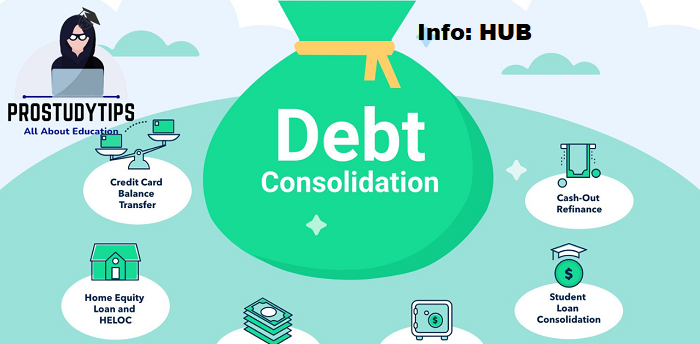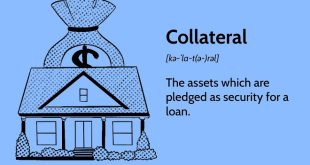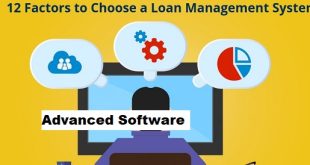Introduction
Debt is a financial obligation that many individuals face in their lives. Whether it’s student loans, credit card debt, or mortgages, managing debt is essential for financial well-being. In this comprehensive guide, we’ll explore various aspects of debt management, from understanding different types of debt to practical tips for staying financially healthy.
What is Debt?
Debt refers to the amount of money borrowed by one party from another. It is typically used to finance purchases or investments and is repaid with interest over a predetermined period.
Relevance and Importance
Understanding how to manage debt is crucial for maintaining financial stability and achieving long-term goals. Mismanaged debt can lead to financial stress, bankruptcy, and a negative impact on credit scores.

Types and Categories
Consumer Debt
Consumer debt includes loans used to purchase goods and services for personal use, such as credit card debt, personal loans, and payday loans.
Mortgage Debt
Mortgage debt is a loan taken out to purchase a home or other real estate property. It is typically repaid over a long period, often 15 to 30 years.
Student Loans
Student loans are funds borrowed to pay for higher education expenses. They can be federal or private loans and must be repaid with interest.
Business Debt
Business debt encompasses loans taken out by businesses to finance operations, expansion, or investments in equipment and inventory.
Medical Debt
Medical debt arises from healthcare expenses not covered by insurance. It can result from unexpected medical emergencies or ongoing treatment for chronic conditions.
Symptoms and Signs
Difficulty Making Payments
One of the early signs of debt trouble is struggling to make minimum payments on loans or credit cards.
Increased Credit Card Balances
Rising credit card balances without corresponding payments can indicate a growing debt burden.
Collection Calls and Notices
Receiving frequent calls from creditors or collection agencies is a clear indicator of financial distress.
High Credit Utilization Ratio
A high credit utilization ratio, which measures the amount of credit used compared to the total available credit, can signal potential financial issues.
Causes and Risk Factors
Overspending
Living beyond one’s means and overspending on non-essential items can lead to accumulating debt.
Job Loss or Reduced Income
A sudden loss of income or reduction in earnings can make it challenging to meet financial obligations.
Emergencies and Unexpected Expenses
Unforeseen medical bills, car repairs, or home maintenance costs can contribute to debt accumulation.
Lack of Financial Literacy
A lack of understanding of personal finance concepts and poor money management skills can increase the risk of falling into debt.
Diagnosis and Tests
Credit Report Analysis
Reviewing your credit report can provide insight into your outstanding debts, payment history, and credit utilization.
Budget Assessment
Analyzing your income and expenses can help identify areas where spending can be reduced to free up funds for debt repayment.
Debt-to-Income Ratio Calculation
Calculating your debt-to-income ratio, which compares your monthly debt payments to your gross monthly income, can assess your overall debt burden.
Credit Counseling
Seeking guidance from a certified credit counselor can help develop a personalized debt management plan.
Treatment Options
Debt Consolidation
Consolidating multiple debts into a single loan with a lower interest rate can simplify repayment and reduce overall interest costs.
Debt Settlement
Negotiating with creditors to settle debts for less than the full amount owed can provide relief for individuals facing financial hardship.
Debt Management Plan
Enrolling in a debt management plan through a credit counseling agency can help negotiate lower interest rates and affordable monthly payments.
Bankruptcy
As a last resort, filing for bankruptcy can provide a fresh start for individuals overwhelmed by debt. However, it has long-term consequences and should be carefully considered.
Preventive Measures
Budgeting
Creating and sticking to a budget can help control spending and prioritize debt repayment.
Emergency Fund
Building an emergency fund to cover unexpected expenses can prevent the need to rely on credit cards or loans in times of crisis.
Financial Education
Continuously educating yourself about personal finance topics can improve money management skills and reduce the risk of falling into debt.
Regular Review of Financial Situation
Regularly reviewing your financial situation and adjusting your budget and debt repayment plan as needed can help stay on track towards financial goals.
Personal Stories or Case Studies
Emily’s Debt-Free Journey
Emily, a recent college graduate, found herself drowning in student loan debt after completing her degree. Determined to become debt-free, she took on multiple jobs and lived frugally, directing all extra income towards debt repayment. Through her perseverance and discipline, Emily paid off her student loans in just five years, inspiring others to take control of their finances.
John’s Credit Card Debt Nightmare
John’s reliance on credit cards to cover living expenses during a period of unemployment resulted in a mountain of debt. With interest rates soaring, he struggled to make even minimum payments, facing constant calls from collection agencies. Seeking help from a credit counselor, John enrolled in a debt management plan and gradually paid off his debts, learning valuable financial lessons along the way.

Expert Insights
Dr. Jane Smith, Financial Advisor
“Managing debt requires a combination of discipline, education, and strategic planning. It’s essential to understand the terms of your loans, prioritize high-interest debt, and seek professional guidance when needed.”
David Johnson, Certified Credit Counselor
“Many people underestimate the impact of debt on their financial well-being. Seeking help early and exploring all available options can prevent debt from spiraling out of control.”
Conclusion
In conclusion, navigating debt requires proactive steps, including budgeting, debt repayment strategies, and ongoing financial education. By understanding the types of debt, recognizing warning signs, and seeking expert advice when needed, individuals can take control of their finances and achieve long-term financial stability.
FAQ
- What is debt?
- Debt refers to the amount of money borrowed by one party from another, typically repaid with interest over time.
- Why is managing debt important?
- Managing debt is crucial for maintaining financial stability and achieving long-term financial goals. Mismanaged debt can lead to financial stress, bankruptcy, and a negative impact on credit scores.
- What are the common types of debt?
- Common types of debt include consumer debt (credit cards, personal loans), mortgage debt, student loans, business debt, and medical debt.
- What are the warning signs of debt trouble?
- Warning signs of debt trouble include difficulty making payments, increased credit card balances, frequent collection calls, and a high credit utilization ratio.
- What are the main causes of debt?
- Causes of debt include overspending, job loss or reduced income, emergencies, and lack of financial literacy.
- How can I diagnose my debt situation?
- You can diagnose your debt situation by analyzing your credit report, assessing your budget, calculating your debt-to-income ratio, and seeking guidance from a credit counselor.
- What are the treatment options for managing debt?
- Treatment options for managing debt include debt consolidation, debt settlement, debt management plans, and bankruptcy.
- What preventive measures can I take to avoid debt?
- Preventive measures include budgeting, building an emergency fund, continuous financial education, and regular review of your financial situation.
- Can you share any success stories of debt management?
- Yes, success stories include individuals who paid off significant debt through disciplined budgeting, extra income generation, and seeking professional guidance.
- What advice do experts offer for managing debt?
- Experts advise understanding loan terms, prioritizing high-interest debt, seeking help early, and exploring all available options for debt management.


